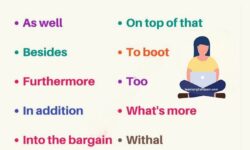Opposite Adjectives in English: A Guide for Learners (PDF)
Mastering opposite adjectives is essential for any English learner who wants to improve their language skills and communicate more effectively. Opposite adjectives (or antonyms) help express contrast, describe situations more accurately, and add variety to your writing and speaking.
In this article, we will learn common opposite adjectives, provide examples, and explain how to use them in sentences.
What Are Opposite Adjectives?
Opposite adjectives are pairs of words that have opposite meanings. For example, the adjective “big” is the opposite of “small.” Learning these antonyms is useful for building a rich vocabulary and enhancing language fluency.
Common Opposite Adjectives
Below is a list of some of the most frequently used opposite adjectives. These can be useful in everyday conversation, writing, and reading comprehension.
| Adjective | Opposite |
|---|---|
| Big | Small |
| Fast | Slow |
| Happy | Sad |
| Hard | Soft |
| Light | Dark |
| Hot | Cold |
| Long | Short |
| Rich | Poor |
| Easy | Difficult |
| Loud | Quiet |
| Strong | Weak |
| Early | Late |
| High | Low |
| Thick | Thin |
| Expensive | Cheap |
| Beautiful | Ugly |
| Brave | Cowardly |
| Clean | Dirty |
| Full | Empty |
| Wide | Narrow |
| Deep | Shallow |
| Fresh | Stale |
| Generous | Mean |
| Heavy | Light |
| Kind | Cruel |
| New | Old |
| Open | Closed |
| Safe | Dangerous |
| Simple | Complicated |
| Smart | Stupid |
| Soft | Hard |
| Strong | Weak |
| Tall | Short |
| Wet | Dry |
| Young | Old |
| Empty | Full |
| Energetic | Lazy |
| Friendly | Hostile |
| Quiet | Noisy |
| Far | Near |
| Happy | Miserable |
| Polite | Rude |
| Present | Absent |
| Safe | Dangerous |
| Sharp | Blunt |
| True | False |
| Wild | Tame |
| Wide | Narrow |
| Weak | Strong |
Examples:
Understanding opposite adjectives is easier when you see them in context. Here are some examples to help you:
- Big vs. Small:
“The elephant is big, but the mouse is small.” - Fast vs. Slow:
“The cheetah runs fast, while the turtle moves slow.” - Happy vs. Sad:
“She was happy about her test result, but her friend was sad.” - Hard vs. Soft:
“The rock is hard, but the pillow is soft.” - Hot vs. Cold:
“The soup was too hot, so I added ice to make it cold.”
Practical Exercises to Improve
Here are some exercises to help you practice opposite adjectives:
- Fill in the blanks:
Complete the sentences with the correct opposite adjective:- The glass is (full), but the bottle is __________.
- The kitten is (quiet), but the dog is __________.
- Create Sentences:
Write a sentence using these adjective pairs:- Long vs. Short
- Easy vs. Difficult
- Rich vs. Poor
Why Learning Opposite Adjectives Is Important
Mastering opposite adjectives can help you:
- Communicate Clearly: You’ll be able to describe things in a more detailed way.
- Boost Writing Skills: Using a variety of adjectives makes your writing more engaging.
- Perform Better in Exams: Language tests often assess your understanding of antonyms, so practicing these will help improve your scores.
Download Your Free Opposite Adjectives PDF
Want to explore more opposite adjectives and keep practicing? Download our free PDF guide, packed with even more adjective pairs and examples to help you master antonyms in English. Click the link below to grab your copy:



